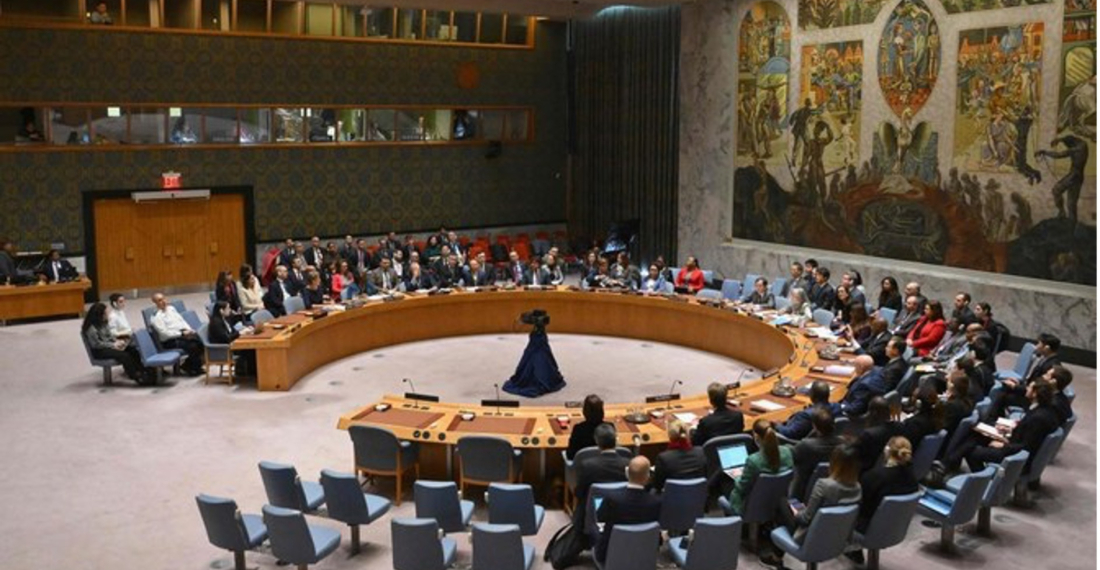The situation in Palestine continues to cast a shadow over the Ramadan festivities in the Arabian Peninsula and across the Arab and Moslem worlds.
On Monday (26 March), the United Nations Security Council (UNSC) finally adopted resolution 2728, demanding an immediate ceasefire for the Muslim holy month of Ramadan, which started on 10 March, leading to a “lasting sustainable ceasefire”. The resolution, which was put forward by the Council’s elected members, also demands the immediate and unconditional release of all hostages and that the parties comply with their obligations under international law in relation to all persons they detain. Resolution 2728 emphasises the need to expand humanitarian assistance and reinforce the protection of civilians in the Gaza Strip. It also reiterates the Council’s demand to lift “all barriers to the provision of humanitarian assistance at scale”.
This was the first time, after 170 days of the war in Gaza between Israel and Hamas, that the UN Security Council could muster enough unanimity to allow for the adoption of the resolution that demanded an immediate ceasefire, lasting for the duration of Ramadan.
The US, which had vetoed previous similar resolutions, abstained. By doing this instead of using its power of veto, it allowed the resolution to pass.
With all other members of the council voting in favour, the result of the vote was 14-0. An indication of the sense of relief around the UNSC table was the round of applause that followed the vote – a rare occurrence in the Council chamber.
Arab and Muslim governments have generally welcomed the adoption of UNSC resolution 2728. Saudi Arabia was one of the first countries to react. In a statement carried by the Saudi Press Agency, the Kingdom expressed hope that a cessation of hostilities will lead to a permanent and sustainable ceasefire; the release of all hostages held by Hamas; and the parties’ compliance with their obligations under international law, as well as an increase in the flow of humanitarian aid to civilians in the Gaza Strip to enhance their protection, the SPA added.
The Kingdom also renewed its calls on the international community to assume its responsibility to stop the Israeli occupation’s attacks on civilians in the Gaza Strip, and to emphasize the necessity of ending the suffering, to provide hope to the Palestinian people, a statement said.
But amongst a wary public in the GCC and beyond, there is widespread frustration and cynicism, and many consider it as being too little, too late.
Palestinian envoy to the UN, Riyad Mansour, speaking in New York yesterday, reflected this mood, saying it had taken “six months, over 100,000 Palestinians killed and maimed, 2 million displaced, and famine for this Council to finally demand an immediate ceasefire.” Palestinians have been killed “in their homes, in the streets, in hospitals and ambulances, in shelters, and even in tents,” he added. “This must come to an end now. There can be no justification for war crimes, crimes against humanity and genocide.” Acceptance of any justification for such crimes would be a renunciation of humanity and destroy the rule of international law beyond repair, Mansour said.
Humanitarian situation, settlements in the occupied territories and Jerusalem return in focus
The UNSC is expected to meet again today to discuss the wider topic of peace and security in the Middle East
High on the agenda is the issue of Israeli settlements in the occupied Palestinian lands. This issue takes added significance given increased activities by Israeli settlers, Israel’s decision this week to do another land grab on the West Bank, and disturbing reports that Israel is planning to allow settlers to occupy the coastline along the Gaza strip. UNSC will today discuss the implementation of resolution 2334 of 23 December 2016 which stated that Israeli settlements constitute a “flagrant violation under international law” and demanded an end to all settlement activity. Resolution 2334 also called for immediate steps to prevent violence against civilians, including acts of terror, and called on both parties to refrain from provocative actions, incitement, and inflammatory rhetoric.
UNSC members are also today expected to stress the importance of upholding the historic status quo at the holy sites in Jerusalem and refraining from provocations, incitement, and inflammatory rhetoric.
Does Israel care about UN Security Council resolutions?
The short answer is that Israel’s Netanyahu’s government is driven by other considerations, and will not be deflected from its tactics. But something different is emerging. The Gaza war has turned global public opinion against Israel in a way that it had never been before. The fact that the US did not veto resolution 2728 yesterday is an indication not only of the frustration of US diplomacy with the government of Netanyahu, but also reflects a changing public mood in the US itself. Israel cancelled a diplomatic visit to Israel after the US abstention, but despite all its bravado even a stubborn and ostrich-like government such as Netanyahu’s government, these ominous developments are something it cannot ignore.






